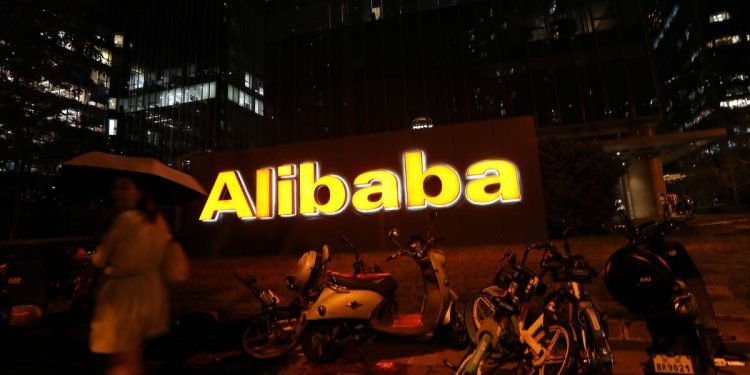Comparing Alibaba's Six New Business Units: A Factbox
Alibaba Announces CEO Succession and Breakdown of Six Business Units

Alibaba Group Holding (9988.HK) revealed a significant executive reshuffle on Tuesday, with Eddie Yongming Wu set to take over as chief executive, succeeding Daniel Zhang. This move marks the company's most substantial leadership change since its restructuring.
In March, the e-commerce giant announced its decision to divide into six separate business units, each headed by its own CEO and board of directors. Additionally, Alibaba adopted a holding company management model, representing the largest overhaul in its 24-year history.
Outlined below are the six divisions:
1. Taobao Tmall Commerce Group: This segment encompasses Alibaba's dominant e-commerce platforms in China, Taobao and Tmall. Despite the maturing e-commerce sector in China and the impact of COVID-19, this division still generates over two-thirds of Alibaba's total revenue. Trudy Dai, a founding team member, serves as CEO.
2. Global Digital Commerce Group: Alibaba's international e-commerce marketplaces, including Lazada (serving Southeast Asia) and AliExpress (popular in Russia, Latin America, and parts of Europe), fall under this unit. While facing strong local competition, these platforms represent some of Alibaba's fastest-growing divisions. Jiang Fan, formerly responsible for Taobao and Tmall businesses, leads this group.
3. Cloud Intelligence Group: Aliyun, Alibaba's cloud computing unit, resides within this division. The company holds a dominant market share of 36% in China's domestic cloud computing sector. The group also houses DAMO Academy (Alibaba's chip and AI research arm) and Dingtalk (its workplace messaging app). A full spinoff of the Cloud Intelligence Group is planned, with a public listing expected within the next year. Alibaba CEO Daniel Zhang currently heads this unit.
4. Local Services Group: This segment includes food and grocery delivery services, such as Alibaba's Ele.me app and Amap (its mapping app). Competition with Meituan, a Hong Kong-listed company, intensifies in China's food delivery sector. Local services currently contribute only 5% to Alibaba's total revenue. Yu Yongfu holds the position of CEO, and Freshippo, Alibaba's grocery arm, is preparing for an initial public offering.
5. Cainiao Smart Logistics: Established in 2013 through investments in various Chinese logistics companies, Cainiao has become a major logistics provider in China, serving both Alibaba and third-party clients. Cainiao represents 7% of Alibaba's total revenue. CEO Wan Lin will continue to lead the unit, which aims to explore an IPO within the next 12-18 months.
6. Digital Media and Entertainment Group: This division encompasses Youku, Alibaba's streaming video site akin to YouTube, as well as Alibaba Pictures, its film production unit.
Alibaba's restructuring and CEO succession signify a significant shift in the company's management and operational structure, as it seeks to adapt to evolving market dynamics and sustain growth across various business sectors.

 chandni
chandni 



